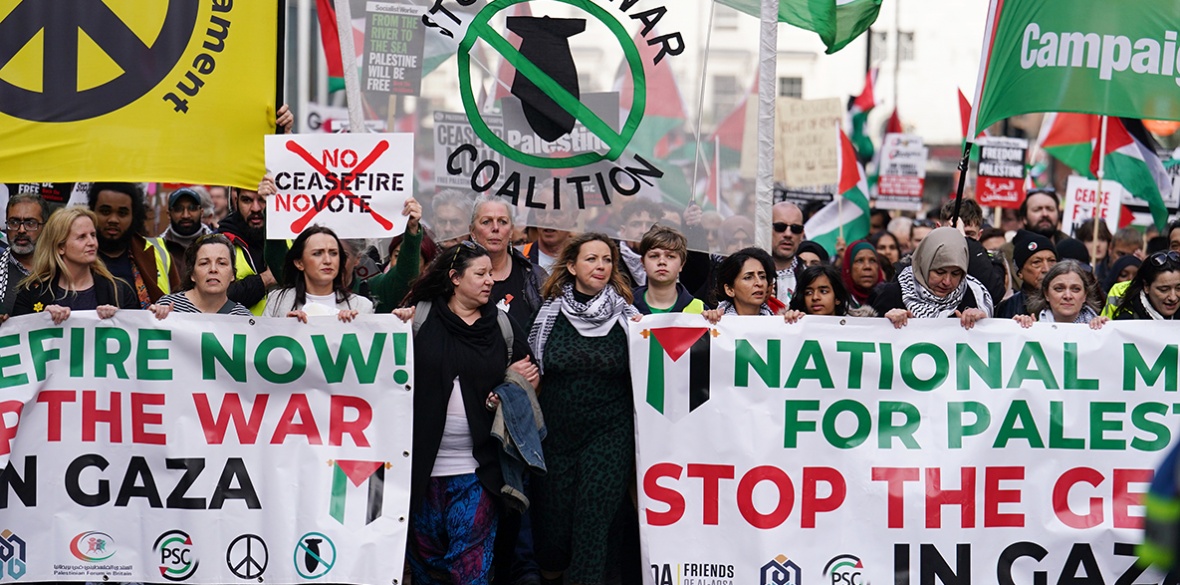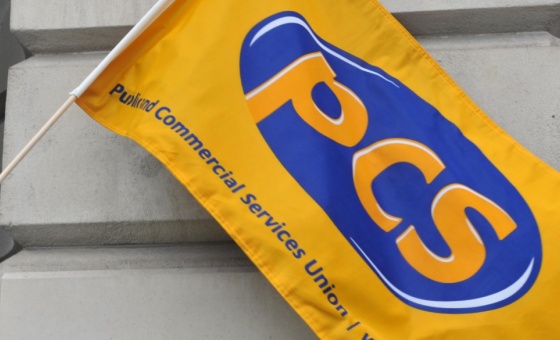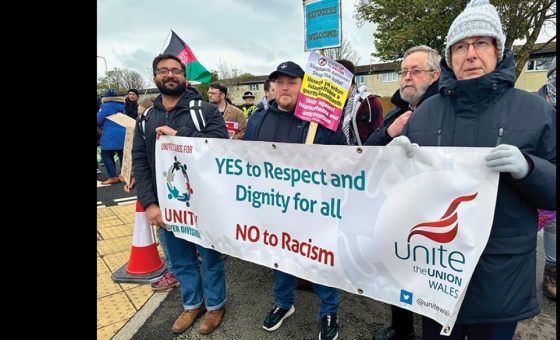This is the last article you can read this month
You can read more article this month
You can read more articles this month
Sorry your limit is up for this month
Reset on:
Please help support the Morning Star by subscribing here
UNIONS and human rights groups have called on the government to reject “profoundly anti-democratic and repressive” proposals to blacklist Palestine solidarity and climate campaign groups.
John Woodcock, Westminster’s adviser on political violence, urged the government earlier this month to ban politicians from engaging with the Palestine Solidarity Campaign (PSC), as well as groups such as Extinction Rebellion and Just Stop Oil.
Mr Woodcock, who has received money from Israel lobby groups, said that the government should take a “zero-tolerance approach” to pro-Palestine protests, which he claimed were a “menace […] threatening our democracy.”
In a joint statement, civil rights orgnisations Liberty, Friends of the Earth and Amnesty International said the activities of organisations like PSC are “essential elements of our democratic system.”
“Any suggestion that the government or political parties should ban all meetings or engagement with legal civil society organisations or sections of the electorate is profoundly anti-democratic and sets a dangerous precedent,” it warned.
PSC has a network of around 100 branches across Britain, and is the country’s largest civil society organisation dedicated to securing Palestinian human rights.
“The recent demonstrations organised by PSC reveal a huge democratic gulf between the majority of the British population on the one hand, which opposes Israel’s violence, and most politicians on the other,” said PSC director Ben Jamal.
“Polling has consistently shown that between two-thirds and three quarters of the public supports an immediate ceasefire.
“Politicians should be listening to the wishes of the public and put pressure on Israel to end its murderous assault, rather than trying to shut down democratic engagement and debate.”
Mr Woodcock told the Times that Labour-affiliated trade unions should “cut ties” with PSC, which he accused of “facilitating the intimidation of parliamentarians.”
Nine unions, including the Labour-affiliated FBU, CWU, and Aslef, fired back with a joint statement.
“Any suggestion that the government or political parties should produce a blacklist and refuse to meet or engage with civil society organisations or sections of the electorate is profoundly anti-democratic,” it said.
“As trade unions, we are all too familiar with such repressive tactics.”
It warned: “It would send the message that any campaigning initiated by anyone outside government or Parliament in support of Palestinian rights is somehow illegitimate.”
PCS union general secretary Fran Heathcote said that “certain politicians and media outlets appear more outraged about people protesting against the slaughter of civilians in Gaza than they are about the actual slaughter of civilians.”
Earlier this month, the government published its Defending Democracy Policing Protocol, after Prime Minister Rishi Sunak claimed that Britain is tipping into “mob rule,” with “forces here at home who are trying to tear us apart.”
The protocol stipulates that protests at MPs’ offices, and democratic venues such as Parliament and town halls, should not prevent access or cause alarm or distress to attendees.
However, in an open letter, human rights group Amnesty International warned it “misrepresents the law and risks having a chilling effect on individuals’ ability to exercise their right to protest in this country.”
On Mr Woodcock’s proposals to clamp down on climate protesters, a spokesperson for Extinction Rebellion hit back that the “real threat to democracy” comes from “narrow private interests who have hijacked our political system through their unfettered access to politicians.”
Communities Secretary Michael Gove is poised to unveil a new, broader definition of extremism on Thursday that will reportedly target Muslim groups such as the Muslim Council of Britain and the Muslim Engagement and Development NGO.
It would also ban any officials from Whitehall, government bodies or quangos from engaging with or funding groups or individuals thought to be linked to extremism in some way.
Ilyas Nagdee, Amnesty’s racial justice director, said that the government’s blacklisting plan “reeks of prejudice and discrimination and is ultimately about the government censoring organisations it does not agree with.
“The government’s continued efforts to stifle dissent, blacklist critics and expand the definition of extremism is irresponsible and a dangerous approach.
“The Secretary of State should immediately abandon this plan.”










